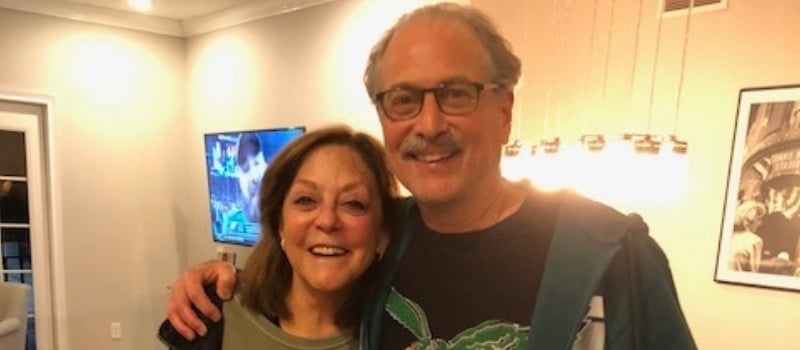Growing up, RMA of Philadelphia’s Dr. Martin Freedman always wanted to be a doctor. A neurosurgeon to be exact.
However, it was during medical school, when he spent time working with Dr. Sam Yen, a reproductive endocrinology pioneer based in California, that Dr. Freedman decided that neurosurgery would have to wait.
“Being exposed to reproductive endocrinology at a basic science level was fascinating,” Dr. Freedman said recently from the King of Prussia office. “I had always wanted to do surgery and I had taken endocrine classes as an undergraduate at the University of Michigan. Reproductive Endocrinology and Infertility was the perfect mix of medicine and surgery.”
When the field of IVF was still in its infancy, Dr. Freedman started his fellowship at Philadelphia’s Hospital of the University of Pennsylvania. Straight out of fellowship, he opened an IVF program at Einstein Medical Center in North Philadelphia, where his team performed the first successful Frozen Embryo Transfer (FET) in the Mid-Atlantic region. The groundbreaking procedure is widely used in the industry today.
After many years, he partnered with Dr. Art Castelbaum and later, Dr. Jackie Gutmann, to open RMA of Philadelphia and Central Pennsylvania.
We recently spoke with Dr. Freedman about his career and the changes in the field of reproductive endocrinology.
Tell us about that first Frozen Embryo Transfer (FET).
Dr. Freedman: Our laboratory personnel invested a significant amount of time traveling down to Texas because some of the early freezing protocols were derived from frozen embryo procedures established in the cattle industry there. Our lab team brought that technology back from Houston. We worked on freezing and thawing mouse embryos to determine if we could be successful in utilizing that for patient care. We finally were able to perform our first FET in 1987. This particular patient was the first FET ever performed by our practice, so it wasn’t like we did a few of them before we had success. This was our very first attempt and it took! It was incredibly satisfying to see the tangible results of a baby that resulted from this medical technology. It was definitely one of the highlights of my professional career.
Where does research fit in your present-day practice?
Dr. Freedman: We continue to invest in critical infertility research, and are honored to have been a part of some of the biggest breakthroughs the industry has seen to date. These include: growing embryos to the blastocyst stage, performing a biopsy on those embryos, testing their chromosomal makeup through comprehensive chromosomal screening (NexCCS), and being able to test parents for genetic disease through preimplantation genetic diagnosis (PGD). Advances in egg and embryo freezing, as well as uterine synchrony, have allowed us to improve implantations rates, as well. It has been an incredible 40 years of progress since the birth of the industry.
What is it about RMA of Philadelphia that differentiates you from other practices in the region?
Dr. Freedman: The quality of the physicians, nurses, and embryologists that make up our practice really sets us apart. It is such a joy to work with top flight, competent and ethical doctors, where we see eye to eye on how to manage and treat patients. Patients who come here really love the way they’re treated, and that’s just not something you can say for every fertility practice. And the ability to be part of IVI-RMA Global is phenomenal in terms of the caliber of clinical care and research that we can offer our patients. It was our goal to be associated with the best clinical and academic program in the world. Ultimately that translates into helping our patients achieve pregnancy.
What is the most rewarding aspect of your job?
Dr. Freedman: It’s incredible to be able to call someone up and say “Your test is positive! You’re pregnant!” I’ll never tire of giving someone that happy news. Everyone may think the specialty they are in may be the best, but we know we are in the best field because of the impact we have on people’s lives. I think all of us in this practice will tell you that we are blessed to be able to do this type of work, because ultimately, it’s not work to us. We’re all very lucky.
How many patients have you gotten to deliver that good news to since you began?
Dr. Freedman: Over the course of 34 years, I’d say close to 10,000 good news calls.
Is there a unique patient story you can share?
Dr. Freedman: I would have to say my three children, who were all conceived as a result of my wife receiving fertility treatment. During my residency, my wife and I had multiple miscarriages. We sought help, and she was able to conceive with injectable medications. That form of treatment was very rare in the early eighties. Having gone through this experience has enabled me to empathize with my patients. The fact that I have personally experienced infertility with my own family is very comforting for patients.
What are some things patients may not know about you?
Dr. Freedman: Well, I’m kind of the office DJ. I’m constantly programming music for the office, as well as patients having procedures. I love music and playing songs for others in the practice. I love going to concerts and I’m fanatical about sports, too, particularly college football. I love the Michigan Wolverines and all professional Philadelphia sports teams. I was in heaven when the Eagles won the Super Bowl and was lucky to be there in person to see the Phillies win the World Series in 2008.




